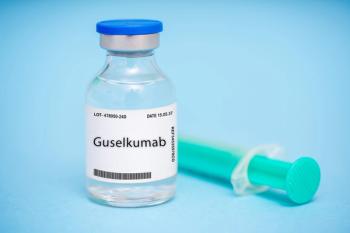
Researchers from Celltrion USA presented their post hoc analysis from the LIBERTY studies at the American College of Gastroenterology 2024 Annual Scientific Meeting.

Researchers from Celltrion USA presented their post hoc analysis from the LIBERTY studies at the American College of Gastroenterology 2024 Annual Scientific Meeting.

Researchers addressed the gut-first hypothesis of Parkinson disease by identifying how mucosal damage impacts risk of development.

Johnson & Johnson announced results from its phase 3 GRAVITI trial exploring guselkumab’s results in subcutaneous (SC) induction and maintenance therapy for treating Crohn’s disease.

Researchers analyzed the lack of prevention and treatment options for managing drug-induced liver injury.

Researchers addressed the association between sleep patterns and digestive diseases, as well as patients’ genetic likeliness of developing future digestive complications.

In a comprehensive literature review, researchers addressed the impact cardiac surgery has on gastrointestinal outcomes.

In a systematic review, researchers explored the role of clinical pharmacists within a multidisciplinary team treating patients with inflammatory bowel disease.

Guselkumab is currently approved by the FDA to treat adults with moderate to severe plaque psoriasis, adults with active psoriatic arthritis, and adults with moderately to severely active ulcerative colitis.

Investigators compared semaglutide and other glucagon-like peptide-1 receptor agonists with dipeptidyl peptidase-4 inhibitors.

Whereby gastroparesis can hinder the absorption of oral medications in the stomach, Tonix Pharmaceuticals is promoting alternative migraine treatments that bypass the digestive system.

The approval offers a first of its kind treatment option for patients living with nonerosive GERD.

Ustekinumab-ttwe, a biosimilar to ustekinumab (Stelara) is expected launch in the US in February 2025.

Struggling with gas, bloating, diarrhea, or other stomach issues? Don’t let digestive discomfort hold your patients back—check out these OTC products to get them feeling their best again.

In an abstract presented at Digestive Disease Week 2024, researchers analyzed Clostridioides difficile episodes and identified the risk factors and potential medications that caused them.

In an abstract presented at Digestive Disease Week 2024, researchers analyzed the prevalence of obesity in patients with and without celiac disease.

Participants with the hungry gut phenotype, identified by the MyPhenome Hungry Gut test, were able to lose double the amount of weight on semaglutide compared to those without.

Study findings can raise awareness for both patients and health care providers about vitamin D deficiency as a potential contributor to bleeding risk, as well as lead to more personalized treatment approaches for patients on blood thinners.

Research presented at Digestive Disease Week suggests that including omega-3 rich foods, or omega-3 supplements, into a healthy diet could offer additional protection against colorectal cancer alongside regular screening.

Recent research exploring the gut-skin connection shows that dietary modifications and probiotic supplements may help skin conditions like acne, atopic dermatitis, and rosacea.

The average US household spent $645 on OTC products in 2022.


In a trend similar to that observed among Western patients with IBD, Korean patients with IBD have an elevated risk of Clostridioides difficile (C difficile).

Ustekinumab-auub is approved for use in both adult and pediatric populations.

Newly approved by the FDA, Celltrion’s infliximab-dyyb (Zymfentra) offers patients with inflammatory bowel disease a more innovative administrative approach to infliximab treatment.

Approval was based on favorable data from two ELEVATE UC phase 3 clinical trials.